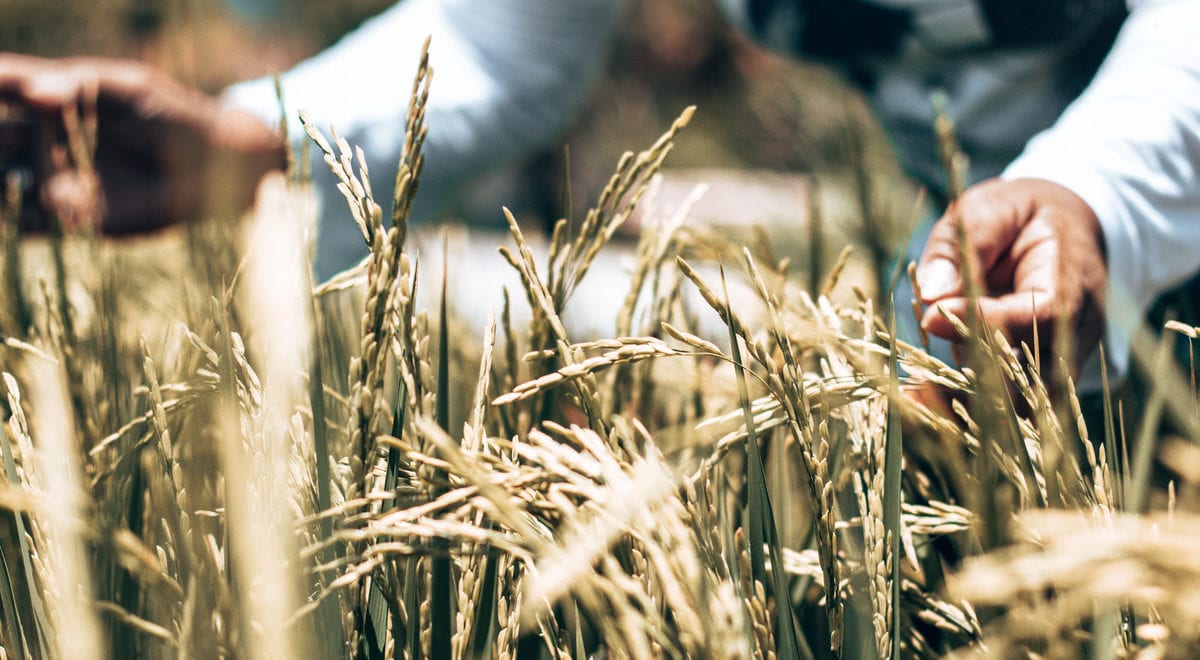Agriculture and food security were ActionAid’s entry points into climate change work. Over a dozen years ago, we began hearing from farmer partners across Africa and Asia about changing rainfall patterns, increasingly frequent floods and droughts, soil salinization due to sea level rise and ocean encroachment. For all of these farmers, these climate disruptions were making it more difficult for them to grow enough food to feed their communities and sell to the market.
So we have known for a long time that agriculture and climate change are deeply intertwined. The warming climate and resulting extreme weather threaten agriculture and food security globally. At the same time, the dominant model of industrial agriculture is a massive contributor to the global climate emergency, due largely to emissions from deforestation and factory farming.
There is no solution to climate change that does not also address the problems with the industrial model of agriculture.
We can’t survive climate change unless our agricultural systems become more resilient by embracing biodiversity and agroecology, moving away from a reliance on chemicals and other external inputs. And we can’t stop climate change without fundamentally transforming the agricultural model to work with nature instead of against it.
Most importantly, however, we won’t be able to make any of these changes if we see this as purely a technical challenge. Unless we ensure the human right to food, we will never achieve food security in the face of climate change. And without a climate justice approach that creates a just transition for farmers, workers, and rural communities, we will never be able to sufficiently reduce emissions from agriculture.
Food and Climate Change
Food security is already being negatively impacted by climate change, and the impacts are expected to become significantly more severe should warming increase past 1.5°C. Food production has received the bulk of the focus, as sea-level rise makes huge swaths of farmland unusable and increasing droughts and floods threaten harvests. But policies that only address food production will not be enough to address the threat of increased hunger from climate change. After all, the world produces more than enough food to feed everyone, yet still nearly 1 billion people are hungry.
To really address hunger, governments must go beyond ensuring food production and recognize and actively support policies that ensure the human right to food. For many communities, particularly in developing countries, this means supporting their ability to produce their own food. Steps such as protecting land rights, measures to support women farmers and investing in the capacity of small family farmers are essential. These farmers are on the front lines of this climate emergency; they must also be at the forefront of responding to the crisis.
Industrial Agriculture and Climate Change
The industrial agriculture system that dominates in the United States and other industrialized countries, and that is rapidly spreading around the world, must shift dramatically to a more sustainable production system. Not only is this system destroying the climate – it is also destroying the livelihoods of farmers, all for the sake of additional profits for big agribusiness companies. Addressing the climate impacts of industrial agriculture will be impossible without fixing the economic injustices built into the same system.
More and more, family farmers are being forced to “get big or get out” while agribusiness consolidation has left them squeezed by increasingly powerful companies. For commodity crops, farmers are being paid less for their crops than what it costs to produce them. It’s no coincidence that bankruptcies are skyrocketing in farms this year.
The transition to a sustainable, resilient food system in response to the climate crisis won’t be possible without the support of farmers and farmworkers themselves. And that support will never be forthcoming unless we address the huge inequities, abuses, and economic injustices in our current food system. A climate justice approach not only recognizes but embraces the need for a solution that addresses both crises.
The Case for Climate Justice
A transition to more just and sustainable food system has to be part of any comprehensive plan to address the climate crisis.
Climate justice and human rights are clearly vital from a moral perspective, but they are also essential from a pragmatic perspective. Just as the industrial agri-food system continually fails to end widespread hunger despite an incredible scale of food production, an economy characterized by natural resource extraction will continue to exacerbate the climate crisis no matter how many decarbonization plans are put into place.
In agriculture as in everything else, climate change is a crisis of injustice, to both people and the planet, not just a problem of carbon emissions. Farmers and food producers – including food and farm workers – must be at the forefront of transitioning to a sustainable model of agriculture. Without the support of communities on the front lines, we will never have the power or the movement we need to transform the food and agriculture system for the better.










